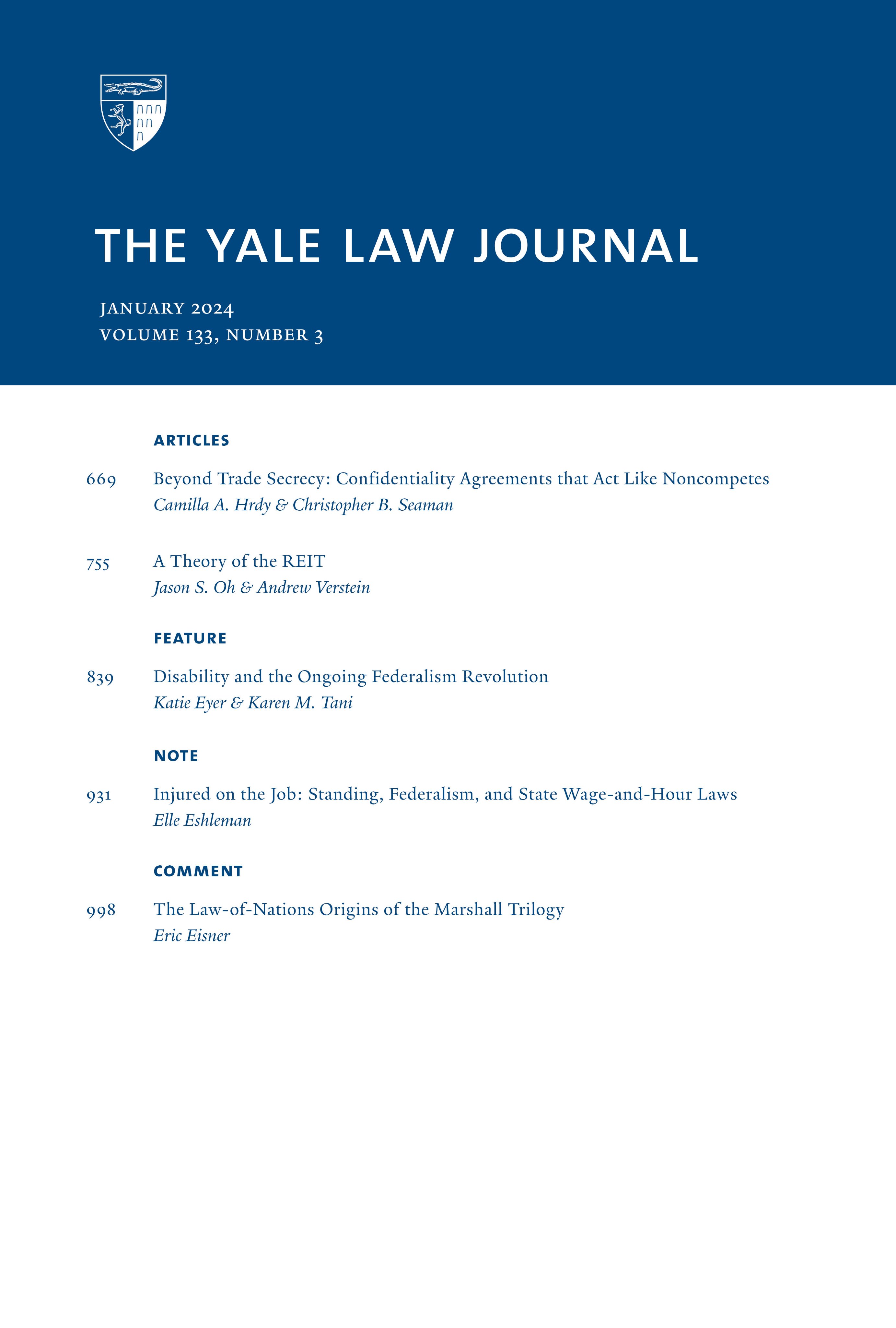合同解释
IF 5.2
1区 社会学
Q1 LAW
引用次数: 34
摘要
合同解释仍然是商业公司之间合同诉讼的最大单一来源。在某种程度上,这是因为合同解释问题很困难,但它也反映了文本主义和情境主义解释理论之间的深刻分歧。虽然绝大多数美国法院继续遵循传统的“形式主义”方法来解释合同,但一些法院和大多数评论家更倾向于“情境主义”解释原则,如《统一商法典》和《第二重述》。2003年,我们发表了一篇文章,提出了一种管理企业之间协议的合同解释理论。在那篇文章中,我们支持合同解释的形式主义理论。我们的文章引发了一些反形式主义的回应。在我们的文章中,我们认为,虽然准确的司法解释是可取的,但准确的解释对于当事人和法院来说是昂贵的。因此,任何社会期望的解释性规则都将在准确性与合同写作和裁决成本之间进行权衡。这种权衡意味着风险中立的商业当事人通常倾向于在有限的证据基础上作出司法解释,其中最重要的因素是合同本身。但重要的是,我们还认为,商业各方在这方面的偏好将是异质的。因此,国家采用的任何解释规则都应该是默认的,国家应该尊重特定当事人对解释的表达偏好。这篇评论文章澄清并扩展了这些论点。我们简要地总结了支持我们理论的经验数据,并回应了我们的批评者。尽管许多学术评论并非如此,但现有的证据和普遍的司法实践都支持这样一种说法,即老练的当事人更喜欢文本主义的解释。老练的商事当事人以书面和无条件的形式明确规定义务,以允许一方坚持其在书面合同下的权利,提高当事方投资交易的动机,并降低诉讼成本,这些都需要成本。情境主义法院和评论员倾向于从当事人手中收回使用这些工具进行合同设计的能力。然而,语境主义者不能以契约自由的名义为如此显著地限制契约自由的规则辩护。本文章由计算机程序翻译,如有差异,请以英文原文为准。
Contract Interpretation Redux
Contract interpretation remains the largest single source of contract litigation between business firms. In part this is because contract interpretation issues are difficult, but it also reflects a deep divide between textualist and contextualist theories of interpretation. While a strong majority of U.S. courts continue to follow the traditional, "formalist" approach to contract interpretation, some courts and most commentators prefer the "contextualist" interpretive principles as exemplified by the Uniform Commercial Code and the Second Restatement. In 2003, we published an article that set out a theory of contract interpretation to govern agreements between business firms. In that article, we support a formalist theory of contract interpretation. Our article has prompted a number of anti-formalist responses. In our article we argued that, although accurate judicial interpretations are desirable, accurate interpretations are costly for parties and courts to obtain. Thus, any socially desirable interpretive rule would trade accuracy off against contract writing and adjudication cost. This trade-off implies that risk neutral business parties will commonly prefer judicial interpretations to be made on a limited evidentiary base the most important element of which is the contract itself. But importantly, we also argued that commercial parties’ preferences along this dimension will be heterogeneous. Thus, any interpretation rules the state adopts should be defaults and the state should defer to the expressed preferences of particular parties regarding interpretation. This Review Essay clarifies and extends these arguments. We briefly summarize empirical data that support our theory, and respond to our critics. Although much academic commentary suggests otherwise, both the available evidence and prevailing judicial practice support the claim that sophisticated parties prefer textualist interpretation. Sophisticated commercial parties incur costs to cast obligations expressly in written and unconditional forms to permit a party to stand on its rights under the written contract, to improve party incentives to invest in the deal, and to reduce litigation costs. Contextualist courts and commentators prefer to withdraw from parties the ability to use these instruments for contract design. The contextualists, however, cannot justify rules that so significantly restrict contractual freedom in the name of contractual freedom.
求助全文
通过发布文献求助,成功后即可免费获取论文全文。
去求助
来源期刊

Yale Law Journal
LAW-
CiteScore
4.50
自引率
6.20%
发文量
0
期刊介绍:
The Yale Law Journal Online is the online companion to The Yale Law Journal. It replaces The Pocket Part, which was the first such companion to be published by a leading law review. YLJ Online will continue The Pocket Part"s mission of augmenting the scholarship printed in The Yale Law Journal by providing original Essays, legal commentaries, responses to articles printed in the Journal, podcast and iTunes University recordings of various pieces, and other works by both established and emerging academics and practitioners.
 求助内容:
求助内容: 应助结果提醒方式:
应助结果提醒方式:


